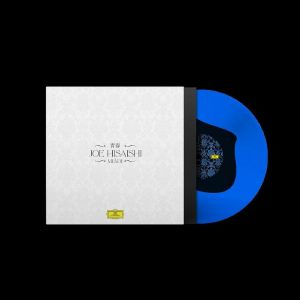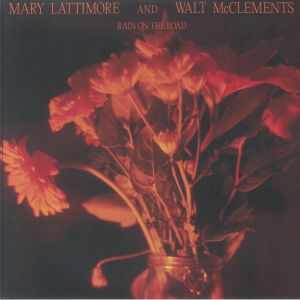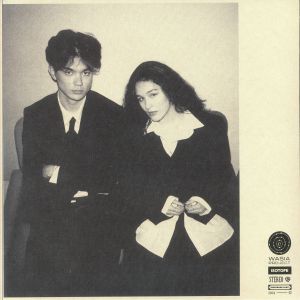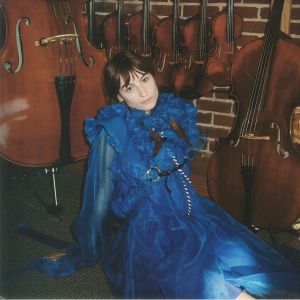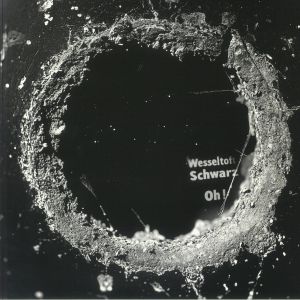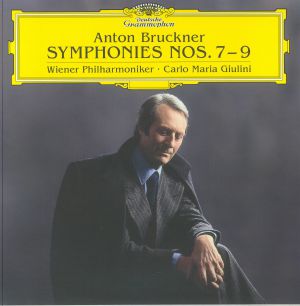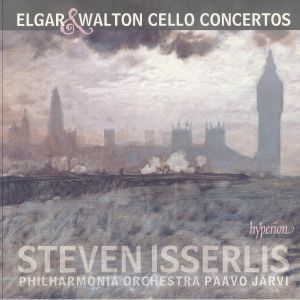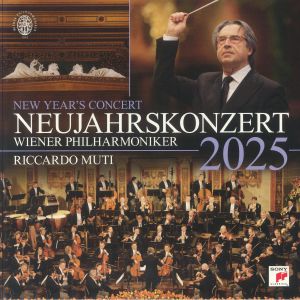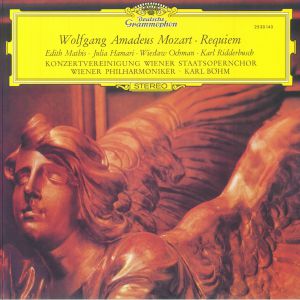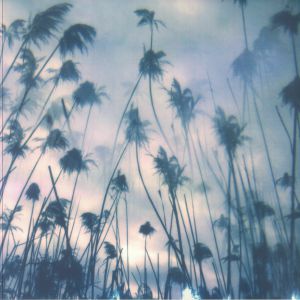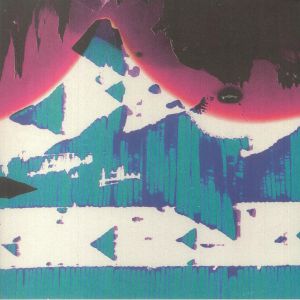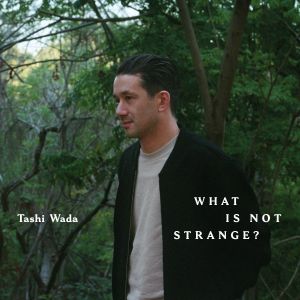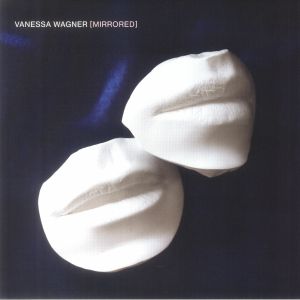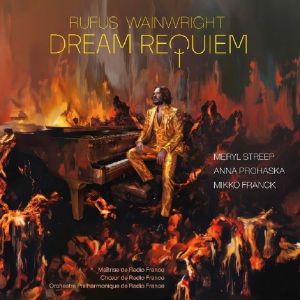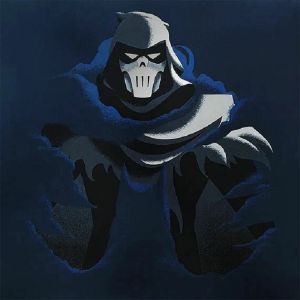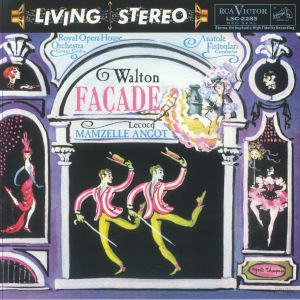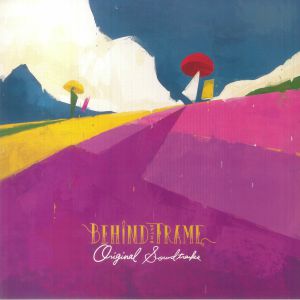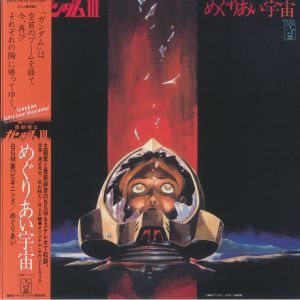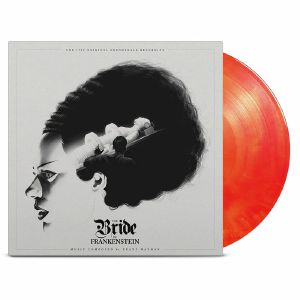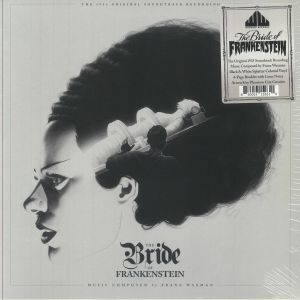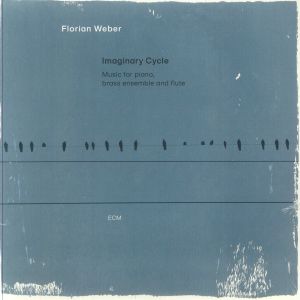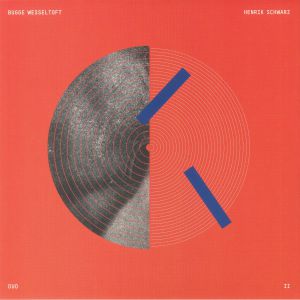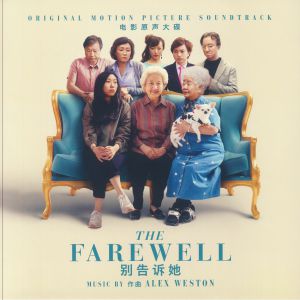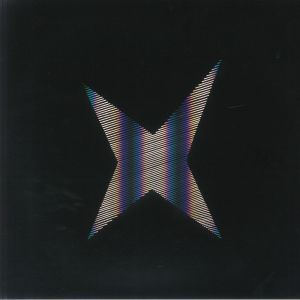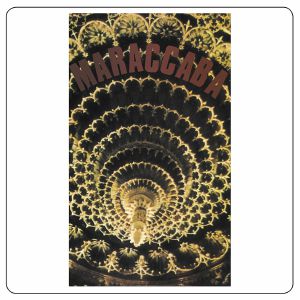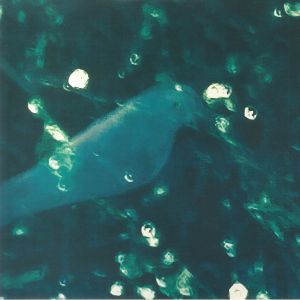Filter
在庫状況
Type
アーティスト
Featured
リリースタイトル
値段
タグ
Back catalogue: Modern Classical
Juno's full catalogue of Modern Classical
シングル
Mladi (translucent blue in black vinyl 12" in spot-varnished sleeve)
Cat: 948768 03. Rel: 05 Dec 24
Review: Joe Hisaishi's latest release offers a compelling fusion of classical and cinematic music. The compositions, originally crafted for film soundtracks, are reimagined with orchestral arrangements that breathe new life into the pieces. The album showcases Hisaishi's signature style, blending emotive melodies with intricate orchestration. Listeners are treated to a rich auditory experience that highlights the depth and versatility of Hisaishi's work.
… Read more in stock $36.12
Rain On The Road (limited opaque blue vinyl 12" (indie exclusive))
Cat: THRILL 608LPX. Rel: 09 May 24
Played by: Juno Recommends Ambient/Drone
in stock $33.03
Review: Wasia Project are a South Croydon-raised sibling duo - Olivia Hardy (vocals, guitar) and William Gao (keyboards, piano, vocals) - who strike a nice balance in sharing the limelight. This is only their second EP but you can tell they're going to be massive. They've already toured in support of Tom Odell and Laufey and they clearly have the quality to go the distance. 'Somebody Come Through' is as good as anything Sharon Van Etten has released. 'Track 6' brings back memories of listening to Beach House and 'To Get Better' is reminiscent of Matt Maltese. Underneath all the indie references there's a really strong classical training and we hear that on the closing track, with a masterful piano crescendo dimming the lights, but leaving us wanting for more.
… Read more in stock $22.39
Car Therapy Sessions (gatefold brown vinyl 12" + MP3 download code)
Cat: SC 459LPC1. Rel: 27 Oct 22
in stock $23.24
Car Therapy Sessions (gatefold 12" + MP3 download code)
Cat: SC 459. Rel: 29 Jan 24
in stock $28.28
Oh! (black & white vinyl 12")
Cat: BB 006. Rel: 17 Feb 25
Played by: Juno Recommends Broken Beat Nu Jazz
in stock $29.11
アルバム
Symphonies Nos 7-9 (limited hand-numbered gatefold 180 gram vinyl 5xLP + 1-sided 180 gram vinyl LP box set in slip-case)
Cat: 486547 3. Rel: 06 Jun 24
in stock $120.67
Back To Black (Soundtrack) (180 gram audiophile vinyl LP + booklet)
Cat: MOVATB 422. Rel: 28 Oct 24
in stock $37.52
Cello Concertos (gatefold LP)
Cat: LPA 68077. Rel: 13 Mar 25
in stock $19.59
In Vienna: Symphony No 2 & Viola Saga (gatefold 180 gram vinyl 2xLP)
Cat: 6500186. Rel: 27 Jun 24
in stock $38.07
In Vienna (limited gatefold 2xLP + insert with obi-strip)
Cat: UMJK 9131. Rel: 22 Aug 24
Review: On March 30th last year, Joe Hisaishi made a triumphant debut at the sold-out Vienna Musikverein when he conducted a program of his own compositions. Now, Deutsche Grammophon has put together the release of Joe Hisaishi in Vienna, the renowned Japanese composer, conductor, and pianist's second album for the label. This recording follows his successful debut, A Symphonic Celebration - Music from the Studio Ghibli Films of Hayao Miyazaki, which was one of 2023's best-selling classical albums. The follow-up features two world premiere recordings in the form of 'Symphony No. 2,' performed with the Wiener Symphoniker, and 'Viola Saga,' featuring soloist Antoine Tamestit.
… Read more in stock $51.79
Ghost (LP)
Cat: CE 001. Rel: 27 Feb 25
in stock $25.20
First Collection (reissue) (limited LP)
Cat: IF 114LP. Rel: 10 Jan 23
in stock $29.11
JOHANN STRAUSS / JOSEF STRAUSS / JOHANN STRAUSS II / EDUARD STRAUSS / JOSEPH HELLMESBERGER II / CONSTANZE GEIGER / RICARRDO MUTI / WIENER PHILHARMONIKER
Neujahrskonzert 2025: New Year's Concert (gatefold 3xLP)
Cat: 198028 75611. Rel: 31 Jan 25
in stock $49.56
Felix KLIESER / WEINER CONCERT VEREIN / VARIOUS
A Golden Christmas (heavyweight vinyl LP + insert)
Cat: 0303131 BC. Rel: 02 May 24
in stock $21.27
Requiem (reissue) (limited hand-numbered gatefold 180 gram audiophile vinyl 2xLP)
Cat: 486672 0. Rel: 04 Feb 25
in stock $67.76
Koselig (LP limited to 200 copies)
Cat: PITPZD 036. Rel: 10 Feb 25
Review: This new one from our favourite US ambient outlet takes the form of a selection of long-form compositions from artists who are close to the label. As such it's a perfect reflection of its signature sound - deeply immersive soundscapes, slowly shifting synths and meditative moods made with a mix of hardware tools, guitars, pedals and even baritone vocals. It's named after a Norwegian term for warmth and intimacy, which certainly plays out from the evolving loops of 'A Whisper' to the textured melancholy of 'Canaan' and the reverberant drift of 'Coronation Ring'.
… Read more in stock $17.91
In The Cell Of Dreams (gatefold LP)
Cat: 7K 047LP. Rel: 29 Sep 23
Review: Shackleton and Waclaw Zimpel's first album Primal Forms was a masterful collaboration which arrived on Cosmo Rhythmatic in 2020. The pair clearly found fruit in their crossover as they return for a second instalment, this time on 7K! and with an expanded approach thanks to the addition of Siddhartha Belmannu, a strikingly talented young singer in the field of Indian classical music. The over-arching intention of the artists was to make a joyous album about the wonder of life and living, but of course this isn't a one-dimensional happy-clappy record. Rather, it's a meditative exercise dealing in fascinating microtonality and mesmerising harmonic interplay with the power to have a profound, uncanny effect on the listener.
… Read morePlayed by: Alexis Le-Tan
in stock $25.20
Review: Los Angeles-based composer Tashi Wada steps out with his long awaited debut album, What Is Not Strange?, and a fine first solo outing it is too. It is by far his most ambitious and widescreen work to date and it comes laden with plenty of emotion as a result of the fact that it was written and recorded over a period that encompassed the death of his father and the rather opposite feelings of experiencing the birth of his daughter. As such Wada reflects inward to explore various themes including being alive, mortality and finding one's place in the world. His unique song based expressionism goes from ecstatic to denser forms and starker contrasts. It is a wonderful experiment and immersive listen.
… Read more in stock $41.16
in stock $28.84
Dream Requiem (2xLP box set + booklet)
Cat: 502173 2500618. Rel: 16 Jan 25
in stock $73.08
The Tear System
The Tear System
in stock $12.31
in stock $17.36
Batman: Mask Of The Phantasm (Soundtrack) (gatefold blue vinyl LP with obi-strip)
Cat: MOND 324C. Rel: 20 May 25
in stock $55.99
Moments (remixes) (blue vinyl 2xLP + booklet)
Cat: PL 139LP. Rel: 09 Apr 24
in stock $58.51
In Huge Gesturing Loops (180 gram red vinyl LP limited to 300 copies)
Cat: TIPT 056. Rel: 07 Sep 23
in stock $22.12
Played by: Alexis Le-Tan
in stock $33.03
Facade: Suites/Mam'zelle Angot (180 gram audiophile vinyl LP)
Cat: AAPC 2285. Rel: 21 Jan 25
in stock $52.36
in stock $23.50
Behind The Frame (Soundtrack) (yellow & pink split coloured vinyl LP)
Cat: 8BIT 81772. Rel: 06 Nov 23
in stock $49.00
Yuja WANG / VARIOUS
The Vienna Recital (gatefold heavyweight vinyl 2xLP + insert)
Cat: 486574 0. Rel: 02 May 24
Ludwig Van Beethoven: Piano Sonata No 18 In E Flat Major "The Hunt" - Scherzo/Allegretto Vivace (2:06)
Ludwig Van Beethoven: Piano Sonata No 18 In E Flat Major "The Hunt" - Minuet/Moderato E Grazioso (0:56)
in stock $39.75
Cuckoo (Soundtrack) (gatefold translucent blue vinyl LP + insert with obi-strip)
Cat: 810155 840136. Rel: 12 Dec 24
in stock $47.02
Mobile Suit Gundam Meguriai Sora (Soundtrack) (LP + booklet with obi-strip)
Cat: NAS 2072. Rel: 20 Sep 24
in stock $43.11
The Bride Of Frankenstein (Soundtrack) (reissue) (limited gatefold red & yellow hand poured vinyl 2xLP + booklet)
Cat: WW 085RY. Rel: 13 Mar 25
Review: This deluxe vinyl reissue presents the original Bride of Frankenstein soundtrack featuring remastered audio, new artwork, and estate-approved likenesses of Elsa Lanchester. Directed by James Whale and starring Boris Karloff and Lanchester, the 1935 horror classic is widely regarded as one of cinema's greatest sequels and was rightly celebrated as Whale's masterpiece. The movie was added to the U.S. National Film Registry in 1998 for its cultural significance and this historic release has been sourced from master acetates at Syracuse University and Universal's archives and marks the first time the film's original score is available on vinyl.
… Read more in stock $37.80
The Bride Of Frankenstein (Soundtrack) (reissue) (gatefold black & white splattered vinyl LP)
Cat: WW 085G. Rel: 07 Jan 25
in stock $50.38
in stock $28.28
Underdressed At The Symphony (clear vinyl LP with obi-strip)
Cat: SC 491JLPC4. Rel: 21 Mar 24
in stock $50.68
Review: This project began in 2018 when Jonny Campos was on a break from playing guitar with Grammy-winning Lost Bayou Ramblers and recorded ambient pedal steel passages at Kirkland Middleton's house. The resulting tracks are named after vanished Southern Louisiana waterways and evoke a sense of impermanence. The music flows like a dream, slipping into consciousness as a serene, meditative experience or a deeply resonant one. The album first came digitally and on cassette via Nouveau Electric Records in 2020 but now lands on vinyl thanks to DFA.
… Read more in stock $28.56
in stock $35.28
in stock $29.11
Review: Bugge Weseltoft and Henrik Schwarz first crossed paths on 2011's Duo, a sophisticated blend of Schwarz's cosmic disco tendencies and Wesseltoft's exquisite jazz piano. It was understated, but brimming with inspiration, and it's widely hailed as something of a modern classic. As such, it's a treat to see the pair reunited for Duo II, once more on Jazzland, but if you were expecting a repeat of the first album, think again. With guest vocalists and musicians stirred into the stew, Schwarz and Wesseltoft explore all kinds of new terrain without losing that immediacy and delicacy that made their first joint effort so charming.
… Read more in stock $24.08
All Losses Are Restored (180 gram audiophile red & black & white marbled vinyl LP + CD in die-cut sleeve)
Cat: AVON 1CGR152. Rel: 21 Mar 24
in stock $24.36
Farewell (Soundtrack) (5th Anniversary Edition) (180 gram audiophile turquoise vinyl LP + booklet + insert)
Cat: MOVATM 403C. Rel: 20 Feb 24
in stock $15.67
McEnroe (Soundtrack) (limited transparent blue vinyl LP with obi-strip)
Cat: RAB 1LPX. Rel: 09 Mar 23
in stock $31.35
Review: "One might thus regard the Welsh rarebit as a Machine in which a process is applied to the conditioning and perception of the world of bread and cheese." Suffice to say, John White might not have had the same ideas about what constitutes Machine Music back in 1976 as you do today. This is also the first time we've ever managed to get a reference to Welsh rarebit into the first line of writing about a record, so everyone is learning something today. "The Machines" White refers to are the individual tracks themselves, all recorded between 1967 and 1972 and all comprising different combinations of a thing. Six pairs of "bass melody instruments" made 'Autumn Countdown Machine', different permutations of "the articulations 'ging, gang, gong, gung, ho!'" comprise 'Jews Harp Machine'. And 'Son of Gothic Chord' is crafted from the sequential chord progression of four keyboard players, spanning an octave. Conceptual experimental and wildly imaginative stuff on the borderline of electronica, abstract, mathematical and something otherworldly.
… Read more in stock $29.67
The Dragon Prince: Best Of Seasons 1-3 (iridescent blue vinyl LP)
Cat: LKSO 36424. Rel: 25 Jul 24
in stock $25.48
in stock $24.92
in stock $21.01
in stock $23.50

 USD
USD





